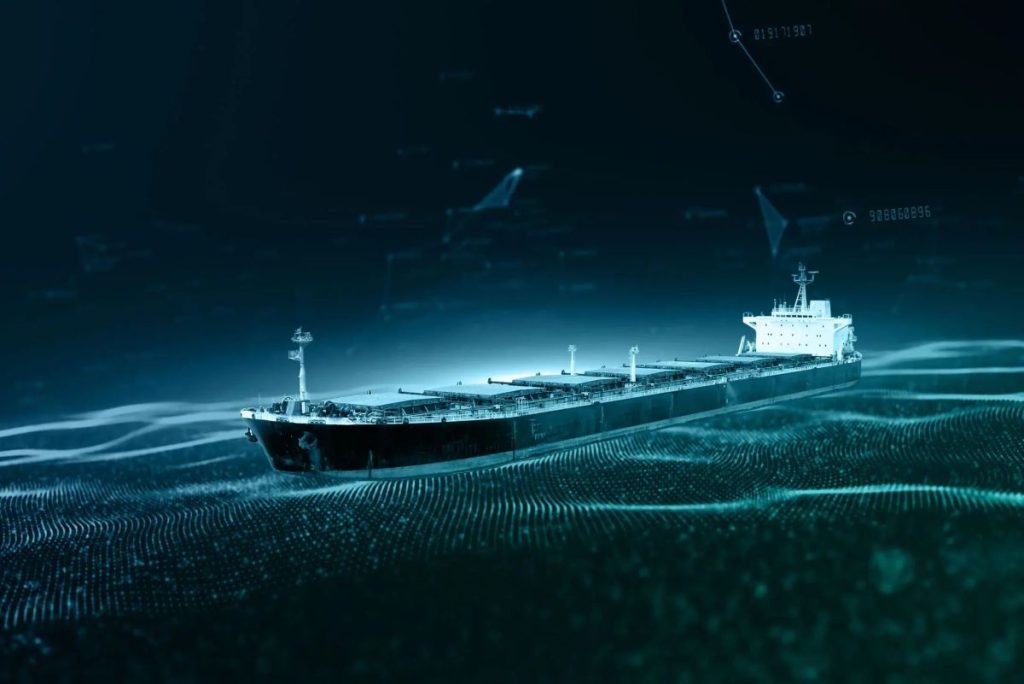The maritime industry is a dynamic and competitive field where businesses face numerous challenges in adhering to regulations and improving efficiencies. Balancing multiple objectives such as fuel costs, safety and emissions is challenging. With the power of multi-objective optimisation, a new chapter for the industry is now unfolding. Explore the benchmarked benefits of multi-objective optimisation from our perspective.
Efficiency is a crucial principle for any successful voyage. By leveraging advanced artificial intelligence, businesses can optimise their routes while considering multiple objectives simultaneously. Over the past years, voyage optimisation has undoubtedly become a multiobjective issue. A multi-objective algorithm creates a population of potential solutions; it then evolves that population over time using evolution inspired techniques such as mutation and crossover to find a set of optimal solutions. That is equal in terms of all the objectives . This enables businesses to achieve the highest efficiency by finding the most favourable balance between fuel consumption, Estimated Times of Departure and Arrival (ETA/ETD), voyage duration, Time Charter Equivalent and overall costs.
Cost Reduction and Profit Maximisation: In an industry with tight profit margins, cost reduction is crucial for success. Multi-objective optimisation with artificial intelligence empowers businesses to identify and implement cost-saving measures. By optimising routes, companies can significantly reduce fuel consumption whilst generating revenue. This leads to substantial cost savings and enhances overall profitability, giving businesses a competitive edge in the market.
Enhanced Decision-Making: Voyage optimisation decisions require considering many variables and constraints. A solution with the core of artificial intelligence enables businesses to make data-driven decisions by evaluating numerous potential solutions and identifying the most suitable options. Through a Pareto-front solution, companies can gain insights into weather patterns, vessel performance, and other critical factors. This knowledge empowers decisionmakers to navigate uncertain conditions more effectively and make proactive adjustments to ensure on-time arrival and customer satisfaction.
Sustainability and Environmental Responsibility: As environmental concerns continue to grow; the maritime industry faces increasing pressure to reduce its carbon footprint. Multiobjective optimisation allows businesses to adhere to regulations with sustainability in mind. By incorporating environmental objectives into the optimisation process, such as minimising fuel consumption and reducing emissions, companies can contribute to a greener future. This aligns with their corporate social responsibility, helps meet regulatory requirements, and creates a safer, greener future for all of us.
Adaptability to Changing Conditions: The maritime industry is inherently dynamic, with factors like weather, market demand, and geopolitical events constantly changing. Multi Objective Genetic algorithms provide the flexibility and adaptability businesses need to respond to these evolving conditions. Companies can make real-time adjustments to mitigate risks and optimise performance by analysing routes, schedules, and resources. This agility ensures businesses can navigate unforeseen challenges and capitalise on emerging opportunities, maintaining a competitive edge in the market.
Tailored Solutions for Business Needs: Each business is unique, with its objectives, constraints, and operational requirements. Multi-objective optimisation offers highly customisable solutions that can be tailored to the specific needs of companies. Providers can collaborate closely with clients to understand their goals, challenges, and workflows. This customisation enhances the effectiveness and relevance of the solution, leading to improved operational performance and customer satisfaction.
T-VOS is the first modular voyage-optimisation engine for Maritime. It is revolutionising the way shipping approaches voyage and performance optimisation. By leveraging these advanced techniques, T-VOS enables enterprises to achieve unprecedented levels of efficiency, cost reduction, sustainability, and adaptability. The ability to balance multiple objectives, make data-driven decisions, and customise solutions to individual needs is transforming the industry and driving competitive advantage. Embracing the power of multi-objective optimisation is a strategic step for businesses seeking to navigate the efficiencies of seas and secure a prosperous and cleaner outlook.

